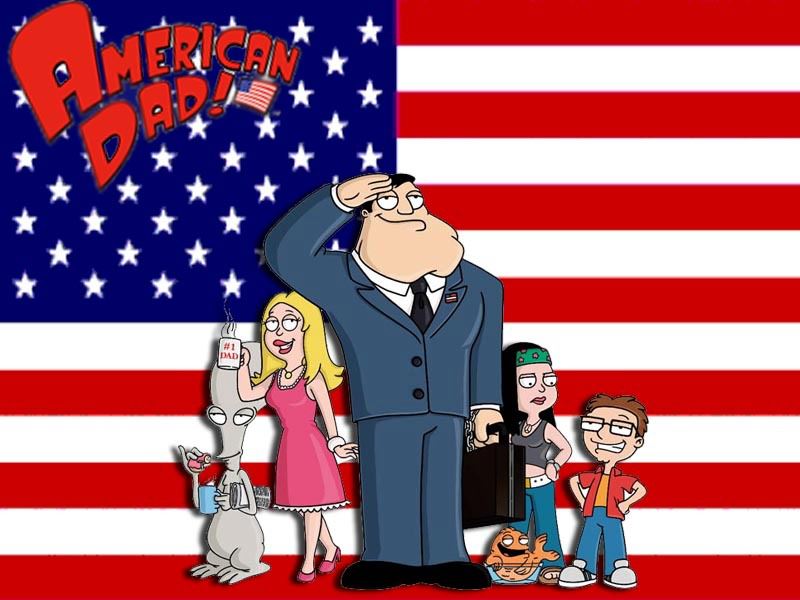Review: American Dad “Gernot & Strudel”
Overview:
A string of selfish behavior in Klaus that threatens to permanently alienate him from his “boys” turns into a nostalgic trip to the fish’s youth. Klaus’ failure to comprehend the basics of sharing prompts a deeper dig into the teaching tools of his childhood. A bizarre piece of children’s programming appears to be the catalyst to Klaus’ redemption, but an unexpected roadblock forces the Smith family to go to painstaking lengths to recreate Klaus’ childhood comfort.
Meanwhile, Roger’s passion for the piano comes in direct conflict with his zest for hard drugs and it seems like it’s up to Steve to keep this delicate balance in place.
Our Take:
American Dad’s treatment of Klaus remains one of the most fascinating relationships in the series. Klaus has come a long way from the Smith family’s perpetual punching bag who’s always the bizarre brunt of the joke. American Dad’s TBS years have made excellent use of Klaus and helped give him a necessary amount of depth so that stories that focus on him don’t need to be frustrating compromises. Klaus is still a wild card who operates in fluid ways as the story sees fit. However, “Gernot & Strudel” is a strong exercise that doesn’t just get to the root of this once-controversial character, but it turns the character into a subject of careful consideration as the Smiths come together to help out this troubled member of their family. “Gernot & Strudel” is one of the best Klaus installments in American Dad’s run, but it’s also a sweet reminder that beneath all of the barbs that these characters genuinely care for each other and that nothing can stop them when they all work together. Whether they’re puppets or people, they’re still always a family.
“Gernot & Strudel” explores various opportunities where Klaus is exposed to the virtues of sharing, but his ambivalence on the topic turns out to be a much more serious problem than an entrenched ego. The Smith family fears that Klaus lacks the fundamental building blocks that are necessary to share and exhibit empathy since Germany’s Sesame Street equivalent, Gernot & Strudel, apparently had better things to cover. There’s a naive assumption that Klaus’ problems can be easily solved through the existence of a sharing-themed installment of Gernot & Strudel. However, the discovery of such an episode comes along with ominous, morbid implications.
For a minute, it looks like American Dad might just become an episode of Gernot & Strudel for an extended portion. This inexplicable children’s series leans into the absurdity of kids’ shows like Yo Gabba Gabba! and the Teletubbies. Only, in the case of Germany’s biggest hit there’s a stark juxtaposition of silly child-friendly characters with bleak, depressing lessons. Some easy Germany jokes fuel all of this, but “Gernot & Strudel” eventually shows that it has more to say. This demonstration returns Klaus to a child-like innocence where he’s beyond committed to share, only this passion goes on to reach problematic levels once the Smiths attempt to pull the plug.
This is all entertaining material that’s born out of a genuinely sweet place as Steve strives to help his friend. It evolves into a playful game of wits that equips Steve with some unexpectedly vaudeville gags that are so much fun. These broad jokes tonally define these two’s exploits and it’s a little extra flair that helps this story standout. It’s an effective source of levity as “Gernot & Strudel” navigates through melodramatic material like addiction. There are only so many places that this storyline can go, but it certainly stays fresh and helps improve upon the episode’s momentum. There’s a certain predictability to any story of this nature that involves Roger, a random talent, and sobriety, but fortunately “Gernot & Strudel” doesn’t give into easy temptations and repeat the hits. The resolution of Roger’s musical interlude and dalliance with sobriety isn’t anything revelatory, but it’s a satisfying (and bloody) finish to a consistent, silly episode.
“Gernot & Strudel” is the type of emotional piece of gonzo storytelling that American Dad never fails to do justice. At no point is the episode’s grander direction obvious and each new development improves upon this insane introspection rather than spin its wheels on silly visuals. The episode’s two separate stories could compliment each other a little better, but “Gernot & Strudel” is still an American Dad entry that feels fulfilling and complete by the time that its credits roll.
And don’t forget, Del Monaco runs this city.

























"There are also other characters that come and go (also owned by the Warner Bros. Discovery conglomerate media company)."
Huh. Is that just referring to other characters from the show itself, or is this implying that the new season is going to have cameos from other WBD IPs